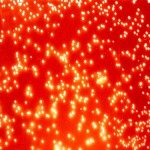Lien vers Pubmed [PMID] – 27848981
Lien DOI – 3641910.1038/srep36419
Sci Rep 2016 Nov; 6(): 36419
Listeria (L.) monocytogenes is an opportunistic pathogen causing life-threatening infections in diverse mammalian species including humans and ruminants. As little is known on the link between strains and clinicopathological phenotypes, we studied potential strain-associated virulence and organ tropism in L. monocytogenes isolates from well-defined ruminant cases of clinical infections and the farm environment. The phylogeny of isolates and their virulence-associated genes were analyzed by multilocus sequence typing (MLST) and sequence analysis of virulence-associated genes. Additionally, a panel of representative isolates was subjected to in vitro infection assays. Our data suggest the environmental exposure of ruminants to a broad range of strains and yet the strong association of sequence type (ST) 1 from clonal complex (CC) 1 with rhombencephalitis, suggesting increased neurotropism of ST1 in ruminants, which is possibly related to its hypervirulence. This study emphasizes the importance of considering clonal background of L. monocytogenes isolates in surveillance, epidemiological investigation and disease control.



